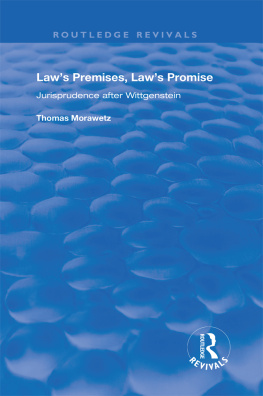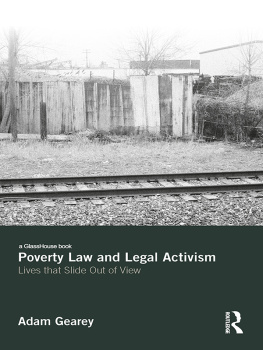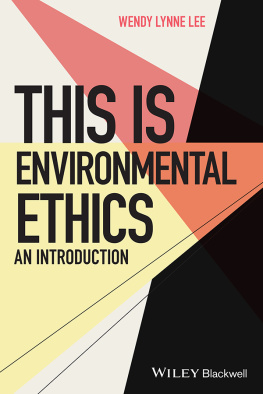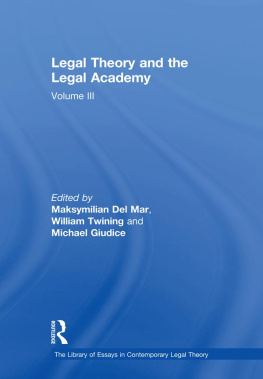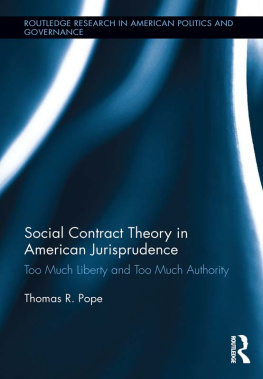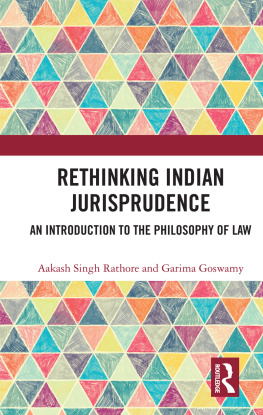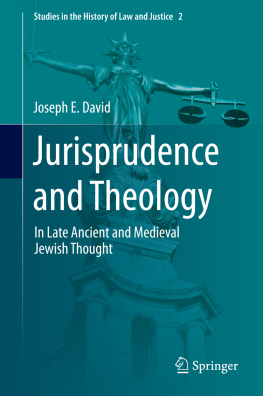Jurisprudence
Second Edition
Jurisprudence offers a comprehensive and accessible overview of legal theory and philosophy. Written in plain English, it examines and demystifies the discipline's major ideas, promoting a deeper understanding of the social, moral and economic dimensions of the law. It critically assesses the major schools of jurisprudential thought throughout history and to the present, from Plato and Aristotle to Enlightenment thinkers, postmodernists and economic analysts. The book challenges students to reconsider their moral intuitions about the law in light of established and emerging theories.
This edition examines recent debates and literature in legal philosophy. It features new material on scientific advances in cognition and human behaviour in relation to the law. The book expands significantly on its discussion of natural law theory, evolutionary jurisprudence and theories of justice. Special attention is paid to the revival of theological natural law, challenges to legal positivism, assessments of Scandinavian realism, critiques of law and economics from the Austrian economic perspective and the continuing relevance of Enlightenment moral philosophy.
Fully revised and updated, this book remains an essential resource for students of jurisprudence and legal philosophy.
Suri Ratnapala is Professor of Public Law at the University of Queensland and a Fellow of the Australian Academy of Law.
Jurisprudence
Second Edition
Suri Ratnapala
477 Williamstown Road, Port Melbourne, VIC 3207, Australia
Published in the United States of America by Cambridge University Press, New York
Cambridge University Press is part of the University of Cambridge.
It furthers the Universitys mission by disseminating knowledge in the pursuit of education, learning and research at the highest international levels of excellence.
www.cambridge.org
Information on this title: www.cambridge.org/9781107612570
Cambridge University Press 2013
This publication is in copyright. Subject to statutory exception and to the provisions of relevant collective licensing agreements, no reproduction of any part may take place without the written permission of Cambridge University Press.
First published 2009
Reprinted 2011, 2012
Second edition 2013
Cover design by Kerry Cooke
Typeset by Aptara Corp.
Printed in China by C & C Offset Printing Co. Ltd.
A catalogue record for this publication is available from the British Library
A Cataloguing-in-Publication entry is available from the catalogue of the National Library of Australia at www.nla.gov.au
ISBN 978-1-107-61257-0 Paperback
Reproduction and communication for educational purposes
The Australian Copyright Act 1968 (the Act) allows a maximum of
one chapter or 10% of the pages of this work, whichever is the greater, to be reproduced and/or communicated by any educational institution for its educational purposes provided that the educational institution (or the body that administers it) has given a remuneration notice to Copyright Agency Limited (CAL) under the Act.
For details of the CAL licence for educational institutions contact:
Copyright Agency Limited
Level 15, 233 Castlereagh Street
Sydney NSW 2000
Telephone: (02) 9394 7600
Facsimile: (02) 9394 7601
E-mail: info@copyright.com.au
Cambridge University Press has no responsibility for the persistence or accuracy of URLs for external or third-party internet websites referred to in this publication and does not guarantee that any content on such websites is, or will remain, accurate or appropriate.
To Vidura Ravindranatha, Rusri and Adrian Surindra
Contents
List of figures
Acknowledgments
The second edition of this book follows extensive research undertaken at three institutions whose support I gratefully acknowledge. My employer, the University of Queensland, through the TC Beirne School of Law, provided facilities and research time within its generous research support program. I was also the recipient of research fellowships from the Social Philosophy and Policy Centre, Bowling Green State University, Ohio (which has since moved to the University of Arizona) and the International Centre for Economic Research at the Universit degli Studi di Torino and at the Faculty of Economics and Public Administration, the University of Economics, Prague. I am grateful to Professor Fred Miller of the SPPC and Professor Enrico Colombatto of ICER and their respective staff and colleagues for the invaluable opportunities they provided me to further my work. I owe deep gratitude to the publishing and editorial teams at Cambridge University Press in Melbourne, in particular Kim Armitage and Philippa Wishaw, for their encouragement, support and patience that allowed me to complete this edition amidst the increasing demands of university teaching and unexpected vicissitudes of life. I thank Jodie Fitzsimmons for her invaluable editorial improvement of the text in many places and for ensuring the accuracy of data.
My effort to complete this work on time was arrested by a life-threatening heart ailment that required major surgery. I owe an incalculable debt to our family physician, Dr Vicky Robinson; the brilliant cardiac team at the Wesley Hospital in Brisbane, led by Dr Bruce Garlick and Dr Stephen Cox; and the hospital's gentle, caring and skilled nursing staff.
The love and support of my family, as ever, receive my highest acknowledgment.
Suri Ratnapala
2013
Introduction
This book is about the social phenomenon that is known as law, and its relation to justice. This is not a treatise on some branch of law such as contract law, tort law or criminal law. It is about past and present theories concerning the nature of law and justice in general. However, it is not possible to conduct an inquiry of this nature, let alone make sense of the more important questions, without reference to actual legal systems and actual laws. Hence, specific rules of law figure in discussions throughout this book.
Jurisprudence in the sense used in this book has been around since at least the time of the philosopher Socrates (469399 BC). Great minds have sought answers to questions about the nature of law, right and justice, but questions persist. This says as much about the complexity of these ideas as it does about the limits of our language and reason. Theories that have proposed answers to questions have themselves become subjects of ongoing debate. This book does not pretend to have the last word on any of these questions, but neither does it seek to avoid controversy. Its primary object, though, is to state in comprehensible terms the major questions in jurisprudence, assess critically the contributions on these questions made by various schools of thought, introduce the reader to some new insights about legal systems and make its own contribution to this conversation about law and justice. It does not matter that there is no consensus about the meaning of concepts such as law and justice. There may never be. We can make up our own minds after getting to know relevant theory, and in so doing learn a great deal about the legal system and the society we find ourselves in.


